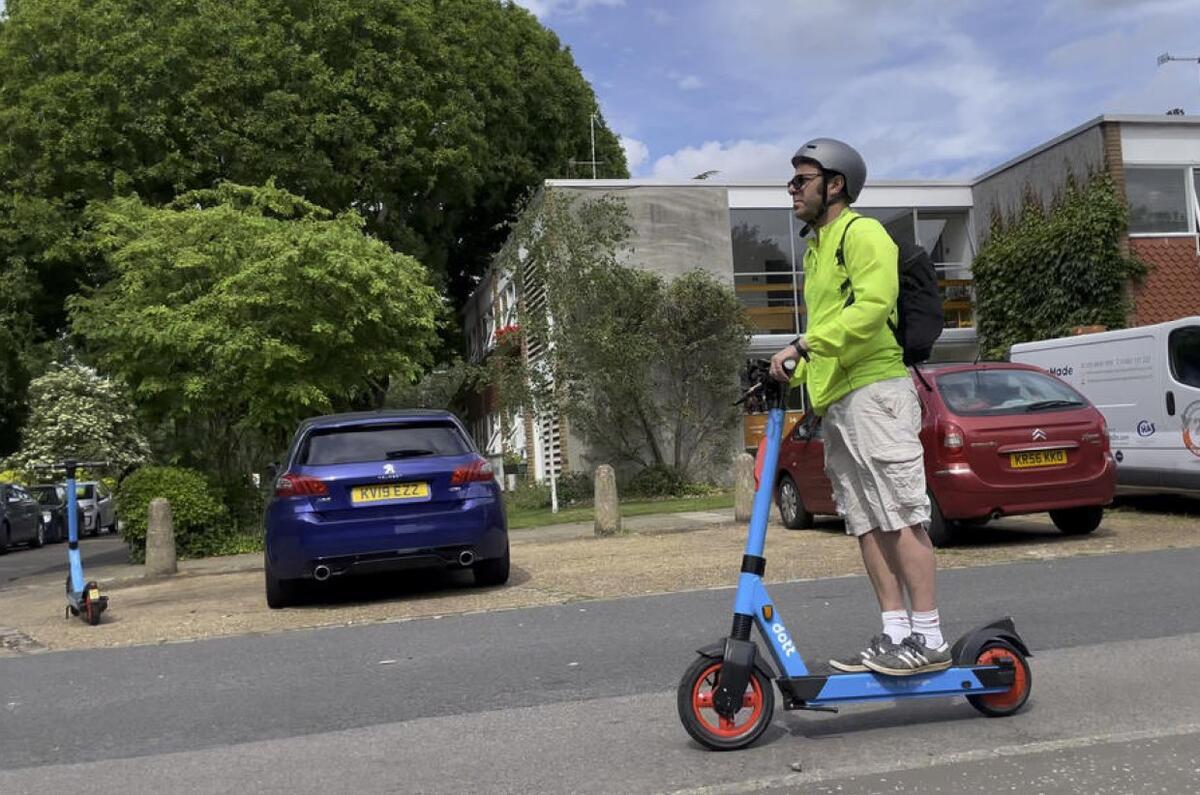The UK government will consider creating an entirely new category of vehicle for e-scooters, with its own rules and regulations, if their use is made fully legal on public roads, according to a minister in the Department for Transport.
At the moment, e-scooters fall under the regulations for motor vehicles. At present, it is illegal to use e-scooters on public roads, unless as part of a government-backed rental trial scheme. While it is legal to buy and sell private e-scooters, it is illegal to use them on public roads because they do not comply with the regulations for motor vehicles.
Are e-scooters legal? Move Electric explains all
The government is currently undertaking a future of transport regulatory review, and as part of that is considering whether and how to legalise e-scooters. Speaking during a debate on e-scooter safety in the House of Lords, Baroness Vere of Norbiton, the Parliamentary Under-Secretary of State in the Department for Transport, said that no decision had yet been taken about the future legal status of e-scooters, and that no timeline has been set.
Baroness Vere added: “If they are to be legalised, we would consider removing them from the motor vehicle category and instead creating a new bespoke category of vehicles with the appropriate regulatory regime in place.”
That could require the government to pass primary legislation to create the new regulations, although Baroness Vere said many options were being considered.
Government highlights potential benefits of e-scooters
Noting that “transport is always changing”, Baroness Vere added: “The Government believes that, with the right regulations, there is potential for significant economic, social and environmental benefits from light, zero-emission vehicles such as e-scooters.
“E-scooters can help to reduce emissions… They can reduce carbon, of course, and nitrogen oxide emissions and particulates, which both contribute to poor air quality.”
Baroness Vere said that e-scooters would provide environmental benefits if users switched from cars, but accepted that would not be the case if they switched from cycling or walking. She added: “Mode shift will be a key part of our considerations going forward.” She cited pre-Covid examples across Europe that suggested modal shift to e-scooters came one-third from walking, one-third from public transport, 15-20% from cars and 10% from cycling.”
Baroness Vere said that the ongoing rental e-scooter trials, many of which has been extended until November this year, are designed to help the government take a “measured and evidence-based approach” to policy discussions.
There have been 31 trials across 54 regions involving more than 66,000 3-scooters. Around 13 million trips have been taken, covering 18.5 million miles, by around a million individual users.
Baroness Vere also highlighted measures taken to improve safety in those trials, including limiting speeds to 15.5mph and power to 5 watts, requiring rental firms to provide insurance and users to have a full or provisional driving licence, and making it illegal to use e-scooters on pavements.
In addition, the DfT has set out minimum safety standards for e-scooters, including the requirements for lights and a warning noise, the use of data-sharing and training apps for users.








Join the debate
Add your comment
There's a lot of scaremongering and propaganda around e scooters and thier safety, essentially because of a lack of regulation, can you imagine the hoo har if 750 cc motor cycles were just recently invented, crashes on motorcycles if only going 40 to 50 mph can be fatal or cause serious injury, but with regulation the safety and risk to injury has been minimised. There will always be accidents, no matter what transport you use, regulation is key. How is driving around in a car or motor bike for every journey healthy? The motor cycle and bicycle is not here to replace cars either. Most of the arguments against e scooters are flawed and biased there may be other underlying reasons they draw so much criticism, with modern regulation they will be beneficial. Rare minerals such as lithium is currently been sourced in Cornwall, there are serval U.K. based scooters designers and manufacturers that could do with support from regulation, it's is true many e scooters are made overseas, but so is BMW, Mercedes and Tesla.
it seems to me, the critics seem to be way out of touch....... I actually own my scooter and I'm 54
Imagine it in a year or two, thousands of these thing's zipping right and left, ridden by all ages, some with some modicum of respect for non E - Scooter users, it's just another thing the local Bobby hasn't got time to deal with.
Mowed down by those on several occasions. At least a young person with decent reactions has a chance of avoiding the impact.